
heaven is a place on earth
An new poem by arson. | more…

An new poem by arson. | more…
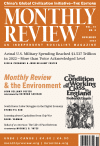
In 2022, China released its “Global Civilization Initiative,” a document enumerating China’s commitment to fostering diversity, equality, and cultural exchange. The editors analyze how the U.S. foreign policy community and media jumped to attack the initiative in the interest of defending U.S. imperial strategy around the globe. | more…

How much does it cost to maintain an empire? A stunning new analysis by Gisela Cernadas and John Bellamy Foster shows the true scale of U.S. military spending, which far outstrips conventional estimates, which use data gleaned from traditional sources. | more…
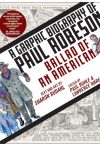
Michael Yates reviews Ballad of an American, a newly released graphic biography of Black actor, singer, and activist Paul Robeson. The book gives an uncompromising look at a complicated, passionate man, wholly dedicated to the cause of liberation. | more…
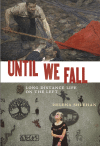
Offers vivid first hand accounts of encounters with fellow socialists following the fall of the Soviet Union
Most westerners glimpsed the breakup of the Soviet Union at a great distance, through a highly distorted lens which equated the expansion of capitalism with the rise of global democracy. But there were those, like Helena Sheehan, who watched more keenly and saw a world turning upside down. In her new autobiographical history from below, Until We Fall, Sheehan shares what she witnessed first-hand and close-up, as hopes were raised by glasnost and perestroika, only to be swept away in the bitter and brutal counterrevolutions that followed.
In Until We
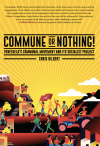
A front-row seat to Venezuela’s most innovative socialist project, with important lessons for movements worldwide
Commune or Nothing! Venezuela’s Communal Movement and Its Socialist Project opens a window on one of the most ambitious revolutionary projects of our time, as it took shape in a country suffering the cruel consequences of US imperialism. In recent years, repeated coup attempts and U.S. sanctions, combined with falling oil prices, have plunged Venezuela into a series of severe shortages leading to malnutrition, sickness, death, and mass migration. Still, as author Chris Gilbert shows, the Venezuelan people have not been passive in the face of these attacks. Resisting
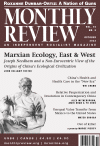
At the center of the United States’s New Cold War MR editors write, is the World Trade Organization, “the crown jewel of the liberal international order.” After China’s admittance into the WTO did not lead to the collapse of socialism in that country, presidents from Obama to Biden have gutted the institution and escalated the tariff war, all in the name of protecting the so-called rules-based international order. | more…

Matteo Crossa reveals the true nature of unequal value transfer from Mexico to the United States. Going beyond a simple tally of wages lost versus remittances, Crossa’s research demonstrates the true magnitude of the value stolen from Mexico, negating the claim that its manufacturing sector is a boon to the Mexican working class. | more…

Roxanne Dunbar-Ortiz reviews Bloodbath Nation, a poignant exploration of the painful, studiously ignored truths about gun culture in the U.S. To grapple with the epidemic of gun violence, she writes, requires confronting deeper truths about white supremacy, settler-colonialism, and the U.S. history of enslavement. | more…

A new poem by Marge Piercy. | more…
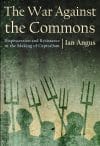
A unique historical account of poor peoples’ self-defence strategies in the face of the plunder of their lands and labor
For five centuries, the development of capitalism has been inextricably connected to the expropriation of working people from the land they depended on for subsistence. Through ruling class assaults known as enclosures or clearances, shared common land became privately-owned capital, and peasant farmers became propertyless laborers who could only survive by working for the owners of land or capital.
As Ian Angus documents in The War Against the Commons, mass opposition to dispossession has never ceased. His dramatic account provides new insights into an opposition that ranged
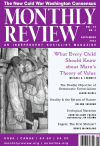
What is the New Washington Consensus? In this month’s Notes from the Editors, MR editors discuss Washington’s fundamental shift in its approach to China, moving from an emphasis on neoliberal globalization toward a new, more aggressive policy pursuing U.S. military and industrial supremacy. | more…
Notifications